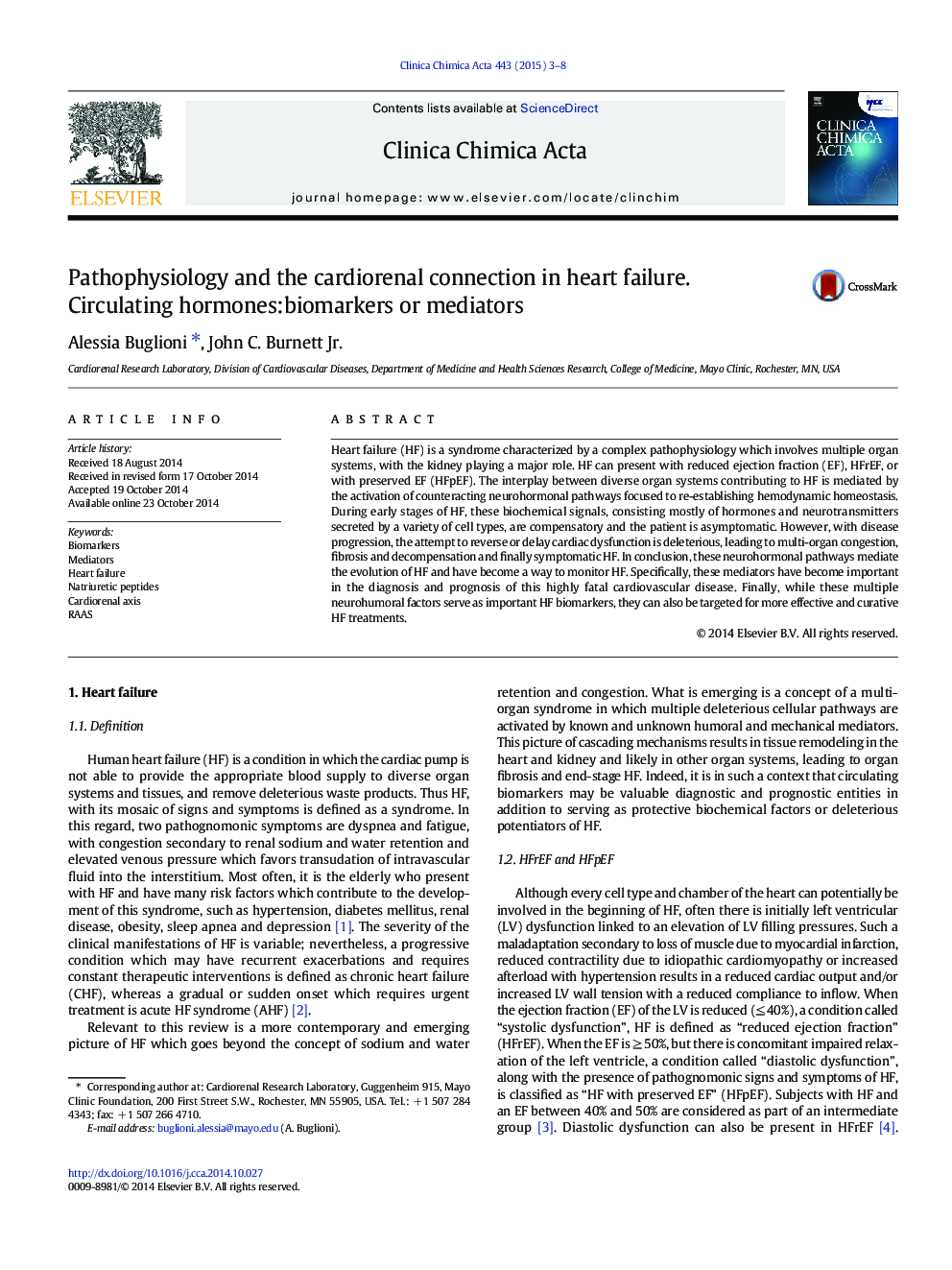| Article ID | Journal | Published Year | Pages | File Type |
|---|---|---|---|---|
| 1965267 | Clinica Chimica Acta | 2015 | 6 Pages |
•Heart failure (HF) is a complex multi-organ syndrome.•The kidney plays a pivotal role in the pathophysiology of HF.•In HF there is simultaneous activation of diverse neurohormonal mediators.•The neurohormonal mediators are biomarkers as they help to monitor disease evolution.•Biomarkers can be targeted for tailored treatment.
Heart failure (HF) is a syndrome characterized by a complex pathophysiology which involves multiple organ systems, with the kidney playing a major role. HF can present with reduced ejection fraction (EF), HFrEF, or with preserved EF (HFpEF). The interplay between diverse organ systems contributing to HF is mediated by the activation of counteracting neurohormonal pathways focused to re-establishing hemodynamic homeostasis. During early stages of HF, these biochemical signals, consisting mostly of hormones and neurotransmitters secreted by a variety of cell types, are compensatory and the patient is asymptomatic. However, with disease progression, the attempt to reverse or delay cardiac dysfunction is deleterious, leading to multi-organ congestion, fibrosis and decompensation and finally symptomatic HF. In conclusion, these neurohormonal pathways mediate the evolution of HF and have become a way to monitor HF. Specifically, these mediators have become important in the diagnosis and prognosis of this highly fatal cardiovascular disease. Finally, while these multiple neurohumoral factors serve as important HF biomarkers, they can also be targeted for more effective and curative HF treatments.
